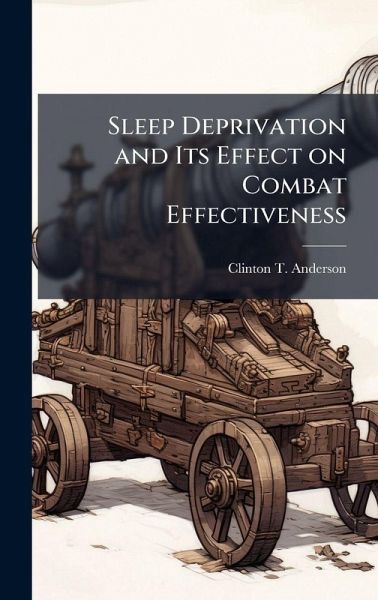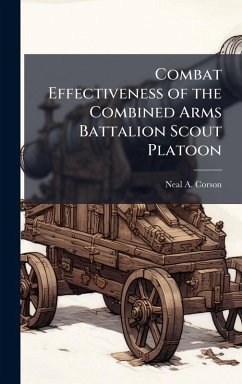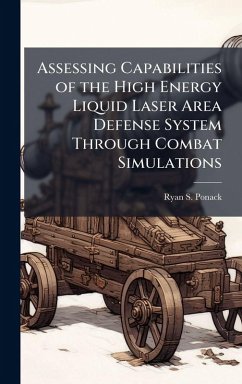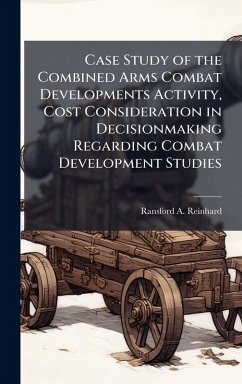
Sleep Deprivation and Its Effect on Combat Effectiveness
Versandkostenfrei!
Versandfertig in über 4 Wochen
25,99 €
inkl. MwSt.
Weitere Ausgaben:

PAYBACK Punkte
13 °P sammeln!
This paper examines the effects of sleep loss on the combat effectiveness of the US Army's leaders and soldiers. It begins with an examination of US and Soviet doctrine for conducting continuous operations. This section discusses the doctrinal methods and procedures that both major powers employ to maintain continuous pressure on their opponent. After laying the theoretical groundwork, it then examines the changes that have occurred in tactical force design since World War II to determine what has been done to enhance or degrade our ability to execute that doctrine. After this discussion on th...
This paper examines the effects of sleep loss on the combat effectiveness of the US Army's leaders and soldiers. It begins with an examination of US and Soviet doctrine for conducting continuous operations. This section discusses the doctrinal methods and procedures that both major powers employ to maintain continuous pressure on their opponent. After laying the theoretical groundwork, it then examines the changes that have occurred in tactical force design since World War II to determine what has been done to enhance or degrade our ability to execute that doctrine. After this discussion on the mechanical aspect of combat, the paper discusses the effects of sleep loss on units and the individual soldier. It concludes that the US Army currently has no doctrine for the conduct of combat over an extended period of time. Adequate doctrine has been provided for the conduct of operations in periods of both limited and unlimited visibility, but the doctrine necessary to transition to continuous operations is not available. Furthermore, recent changes in the force structure of our combat units (primarily Armor and Mechanized Infantry) have significantly reduced the redundancy and robustness in those units that is necessary to conduct continuous operations. During continuous operations our units will be affected by loss of sleep. Sleep deprivation affects the cognitive skills of our leaders greater than the physical skills of our soldiers. To fight the continuous operations that will be forced upon us by our opponent, we must prepare ourselves to combat the effects of sleep loss first. This work has been selected by scholars as being culturally important, and is part of the knowledge base of civilization as we know it. This work was reproduced from the original artifact, and remains as true to the original work as possible. Therefore, you will see the original copyright references, library stamps (as most of these works have been housed in our most important libraries around the world), and other notations in the work. This work is in the public domain in the United States of America, and possibly other nations. Within the United States, you may freely copy and distribute this work, as no entity (individual or corporate) has a copyright on the body of the work. As a reproduction of a historical artifact, this work may contain missing or blurred pages, poor pictures, errant marks, etc. Scholars believe, and we concur, that this work is important enough to be preserved, reproduced, and made generally available to the public. We appreciate your support of the preservation process, and thank you for being an important part of keeping this knowledge alive and relevant.












